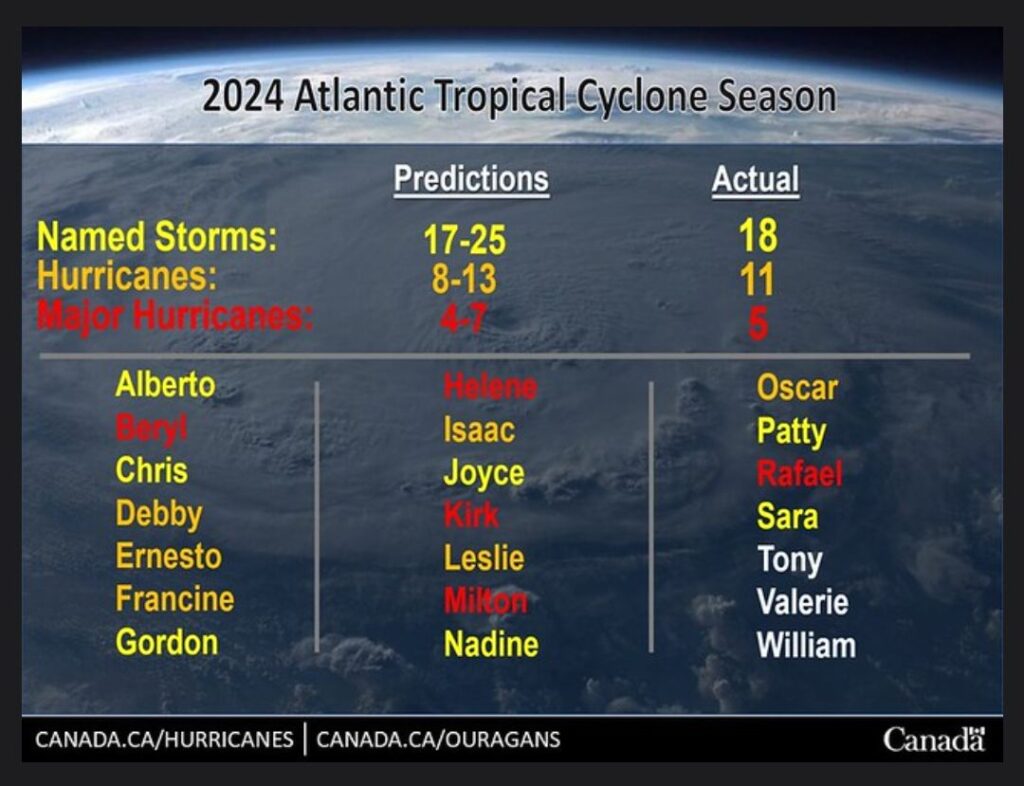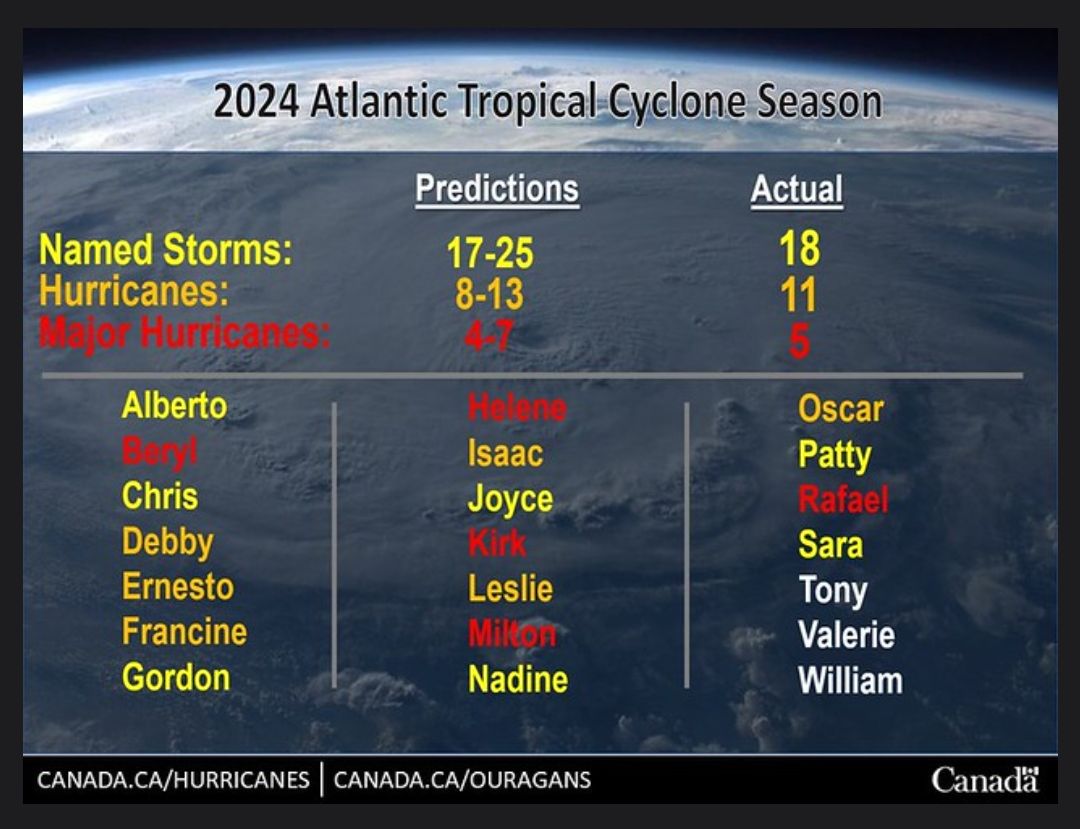**** Info via Environment Canada
End of hurricane season
November 30 officially brought the 2024 Atlantic hurricane season to a close, capping off a period of above-average hurricane activity characterized by a remarkable surge after a mid-season slowdown. The Atlantic Basin experienced 18 named storms, 11 of which became hurricanes, including five major hurricanes. For comparison, an average season typically produces 14 named storms, with seven intensifying into hurricanes and three reaching major hurricane status.

Unusual peak season lull
The 2024 Atlantic hurricane season was highly impactful, marked by an intense start, a temporary lull, and a dramatic resurgence late in the season. Several factors likely contributed to the mid-season slowdown, including unusually strong winds and heavy rains over Western Africa that created less favourable conditions for storm development. However, the season made history with Hurricane Beryl, the earliest Category 5 hurricane ever recorded in the Atlantic basin, and an unprecedented occurrence of seven hurricanes forming after September 25. In total, 12 named storms developed after the climatological peak in early September, underscoring the season’s extraordinary late activity.
Impact of the hurricane season on Canada
Canada had three tropical cyclone impacts this past season, though two were indirect, leaving 2024 well below normal for tropical cyclone activity.
The first was the remnants of Beryl in July, which produced heavy rainfall to southern Ontario and Quebec while interacting with a front. Urban flooding occurred in the Montréal area, but with moderate overall effects.
The most significant event was post-tropical storm Debby in early August, which brought torrential rainfall to southern Quebec as its remnants merged with a frontal system. The resulting flooding was so severe that insured losses reached $2.5 billion, surpassing even the 1998 Ice Storm damage. About a week later, Hurricane Ernesto passed south of Newfoundland before transitioning to a post-tropical system over the Grand Banks. While large waves reached the southeast Newfoundland coast and the offshore oil region, impacts were minimal, with only moderate rainfall of 40–75 mm in the Avalon region.
Learn more on the Canadian Hurricane Centre forecasts and products.
–




